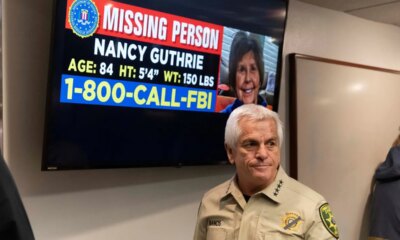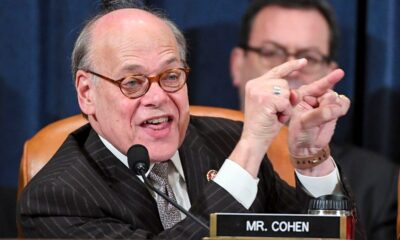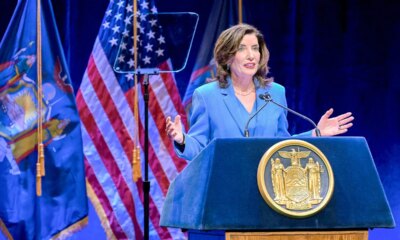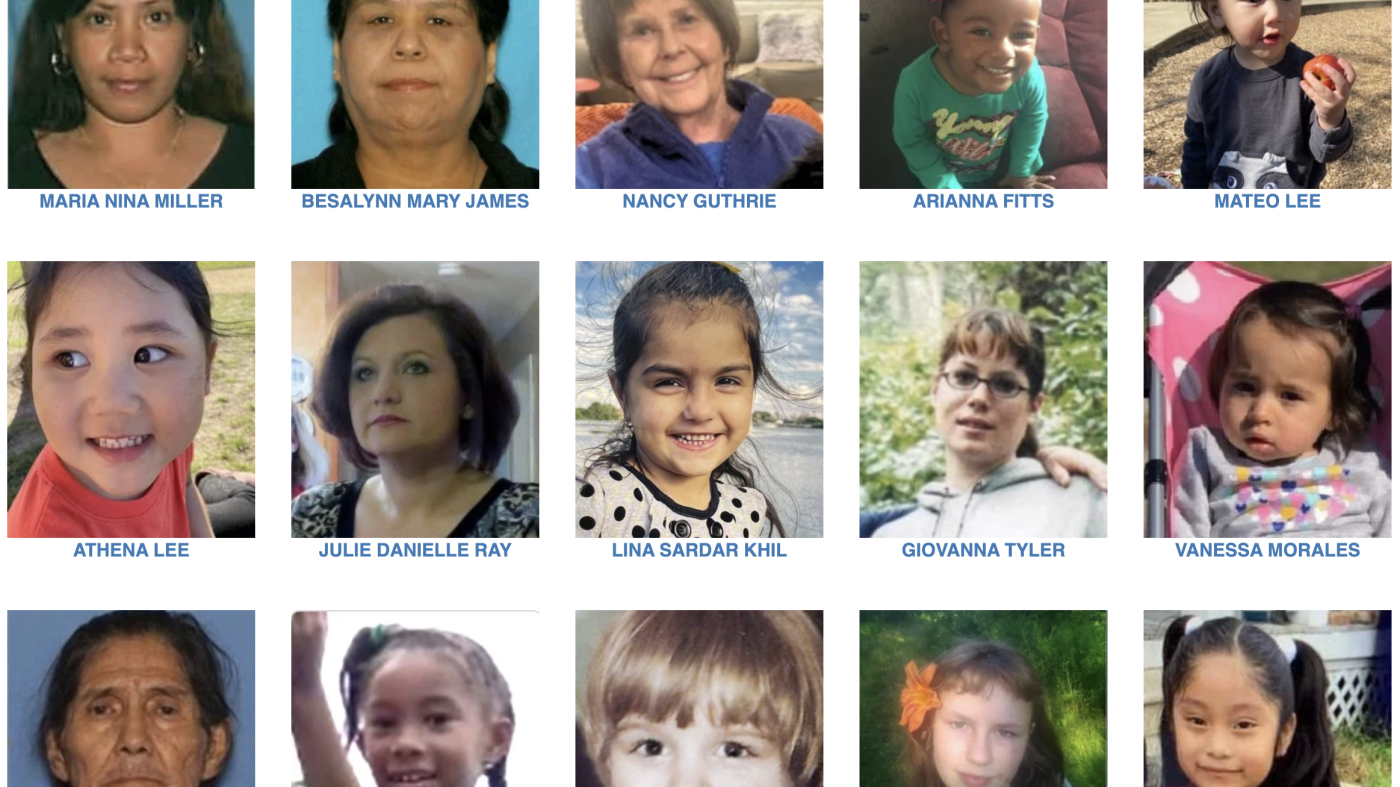UniCredit’s announcement on Wednesday morning that it had built a 9 per cent stake in rival Commerzbank caught the German establishment by surprise. But the move was at least seven years in the making.
Shares in Commerzbank jumped 17 per cent as investors bet that the purchase would lead to a full-blown bid by UniCredit, which has been surrounded in takeover rumours since chief executive Andrea Orcel took charge more than three years ago.
The move paves the way for a deeper tie-up between the second-biggest listed lenders in Italy and Germany, potentially leading to one of the most significant cross-border mergers in European banking and kick-starting a much-anticipated consolidation wave across the continent’s fragmented banking sector.
“Orcel is making clear that UniCredit will be the largest consolidated bank in Europe — and that is what Europe needs,” said Cole Smead, chief executive of UniCredit shareholder Smead Capital Management.
Since the former Merrill Lynch and UBS dealmaker took over at UniCredit, he has done little to quash speculation he would embark on a major takeover. In May, Orcel told the Financial Times that “theoretically, most of the rumours are true inasmuch as, in every single market we look at every possible target”.
The bank’s estimated €6bn of excess capital has only added to the talk.
In fact, a tie-up between UniCredit and Commerzbank has been discussed between the two sides on several occasions over the past few years, the FT has reported. And the Milan-based lender has discussed its interest in its German rival with German government officials on multiple occasions before this week, according to people with knowledge of the talks.
The deal is also viewed as the most likely in Europe by M&A bankers given the potential synergies between Commerzbank and UniCredit’s HypoVereinsbank German subsidiary.
UniCredit has requested permission from the European Central Bank to increase its Commerzbank stake to above 9.9 per cent and executives at the German lender were on Wednesday considering the approach, according to people briefed on internal discussions.
On Thursday morning, Orcel confirmed that UniCredit was considering increasing its stake and potentially merging with Commerzbank.
“We think there is space given fragmentation of the market to add further value by consolidating,” he said in an interview with Bloomberg TV.
“If there is the basis to do that constructively and strengthen what we can provide to the German economy and Europe then that is a great move for UniCredit.”
While Orcel is the first chief executive at UniCredit to make a public move on the German lender, UniCredit executives first approached German officials about a potential deal as early as 2017. At that time, they decided not to pursue talks due to political opposition to cross-border deals in Germany and the Milan-based lender’s own restructuring plans.
Two years later, UniCredit under chief executive Jean-Pierre Mustier prepared a bid to take control of Commerzbank, which received a €23bn state bailout during the financial crisis.
The plan offered an alternative to the merger that the German lender was then discussing with its domestic rival Deutsche Bank.
The idea was to combine Commerzbank with HypoVereinsbank, a more complementary fit than the Deutsche proposal that could mean fewer job cuts and branch closures. HypoVereinsbank, which is predominantly based in Bavaria and the Hamburg area, had less overlap with Commerzbank’s nationwide business.
Mustier was also prepared to consider listing the merged bank in Germany, a suggestion that proved politically toxic in Italy and hastened the Frenchman’s exit in 2021.
Talks over both deals fell through, however, and the German state was left with a roughly 16 per cent stake in the bank.
UniCredit revived its interest in Commerzbank soon after Orcel, who succeeded Mustier, aborted a deal to buy Italian lender Monte dei Paschi di Siena in late 2021.
Informal talks were planned between Orcel and Manfred Knof, his opposite number at Commerzbank, in early 2022. But they were abandoned after Russia’s full-scale invasion of Ukraine forced UniCredit to prioritise dealing with its Russian subsidiary.
Under the original plans, a merger between Commerzbank and HypoVereinsbank would have created a powerhouse in Germany with €785bn in assets, 1,000 branches and 48,000 employees — second only to Deutsche Bank.
UniCredit was then prepared to amass a sizeable stake in Commerzbank and merge the German lender with HypoVereinsbank. The combined entity would have been based in Germany, while UniCredit would have maintained its headquarters and listing in Milan. Commerzbank would have retained a free float of shares listed on the Frankfurt stock exchange.
There is uncertainty about how UniCredit would seek to structure any deal this time around. But the Commerzbank deal follows a similar model UniCredit used when it bought a 9 per cent stake in Alpha Bank from the Greek state last year. Investors predicted the Alpha Bank purchase was a way of UniCredit testing the water in advance of building a bigger position over time — something that has yet to happen.
While there is expectation among some UniCredit investors and bank insiders that it could take the same tack with Commerzbank, there are potential roadblocks to a full takeover.
First, the German government — which is still the biggest shareholder in Commerzbank with a 12 per cent holding — could demand the lender retains a listing in the country as well as its own domestic supervisory board, which is currently chaired by Jens Weidmann, the former German central bank governor.
“Germany needs to have domestic banks to finance its economy, the Mittelstand, and Commerzbank is key here,” said a banker who has experience negotiating with the German government. “This is not only a financial deal, it is a political deal and UniCredit will need to be careful how they deal with the German government.”
UniCredit also faces resistance from Germany’s powerful unions over potential job cuts and a shift in power from Frankfurt to Milan.
“We will fight such a transaction tooth and nail,” said Stefan Wittmann, a senior official at Germany’s services sector union and a Commerzbank supervisory board member. “If necessary, will also organise public protests.”
There is also a scenario where Deutsche Bank would renew interest in its domestic competitor and launch a rival bid, having failed to strike a deal five years ago. However, people close to Deutsche said the bank’s recovery in recent years made it much less interested in pursuing a deal.
Another potential hurdle for UniCredit is if its own investors — who have enjoyed a 230 per cent share price gain over the past three years — push back against the deal because of concerns it might affect the bank’s promise of returns to shareholders. The bank has committed to returning €8.6bn, its entire 2023 profit pool, to investors in the form of buybacks and dividends, and has built an expectation of further returns.
Orcel has been clear with investors he would only pursue a transaction if it meets certain conditions, including a 15 per cent return on investment.
But his empire-building met with a muted response on Wednesday. Shares in UniCredit closed flat, giving the Milan-listed bank a market value of €59bn — three times that of Commerzbank. One top 10 shareholder told the FT that they did not expect the return policy to be affected even if UniCredit were to increase its stake in Commerzbank.
“It’s not an either-or,” they said. “On paper it’s the best match [for UniCredit]. It’s a good deal if they can clear it — but whether they can, we will see.”






































